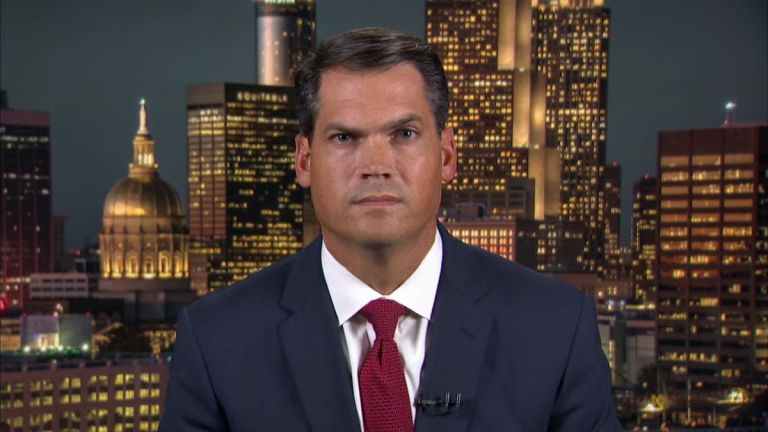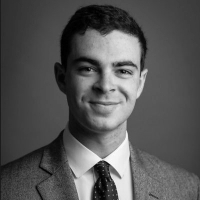Lieutenant Governor of Georgia Geoff Duncan on the State of the Minor Leagues
Geoff Duncan joins the Just Baseball Show to talk about the state of the minor leagues, the lockout, and the All-Star Game

For millions of Americans, baseball is an escape from the slog of day-to-day life. Putting your worries to the wayside and enjoying three hours (or more) of your favorite team on a summer night is irreplicable. That unique feeling that baseball provides can be seen from the living room of a San Diego family, all the way to the highest offices in the state of Georgia. Take Lieutenant Governor Geoff Duncan, for example.
“I get beat up in the media all day long, former presidents are calling me names, people are tweeting about me, but when I come home, and it’s 7:05, and it’s first pitch time, I got a tub of ice cream, and I’m watching the game with my kids.”
Duncan’s work struggles may look a bit different than most Americans’. The former member of the Georgia House of Representatives has served as the state’s 12th Lieutenant Governor since taking office in 2019. But, before Duncan was signing government documents, he was putting pen-to-paper on professional baseball contracts.
“I was a Double-A wonder! I figured it out,” Duncan told the Just Baseball Show.
After playing his college baseball at powerhouse Georgia Tech, Duncan was drafted in the 69th Round of the 1996 MLB Draft by the Florida Marlins. His professional baseball career lasted five seasons, rising as high as Triple-A.
“I lived in seven different states growing up. You know, we’d do the whole moving thing once every couple of years, and I soon realized that if I were the best baseball player or best quarterback, I would automatically have friends each time we moved,” Duncan said about his upbringing. That formula makes sense to us.
“My senior year of high school [in the Atlanta area] was when baseball took off. I realized that I was throwing harder than everyone else, more scouts started showing up, and I thought going off to college was the right next step,” said Duncan. “Thankfully, the number one team in the country was in our backyard.”
“I got to stay close to home [at Georgia Tech],” Duncan noted. “Nomar Garciaparra was my shortstop, Jason Varitek was my catcher, this team was loaded. Intrasquad [scrimmages] were the worst experience of your life if you were a pitcher. They would throw all these guys on the same team, and it was like facing Murderer’s Row. I needed to use an L-Screen to throw in intrasquad games.”
Garciaparra and Varitek had the “golden ticket” to The Show out of Georgia Tech, both being drafted in the first round of the 1994 MLB Draft. Duncan, on the other hand, had an arduous path ahead even to get a gleaming hope of sniffing a big-league roster. As a late-round selection (69th Round), Duncan understands the financial debacle that’s known all too well by today’s Minor Leaguers.
“In 1996, I was in Utica, New York. I signed for $1,000, my first month’s paycheck was $750, and we lived in the dorms at Utica College, so they did an automatic payroll deduction for rent. You would literally start a new month, get your paycheck, and it was for, like, $150. At my peak, I think I made $2,500 a month in Triple-A,” said Duncan.
So, why do players stick it out for as long as they can?
“You know you’re so close. When you’re in Triple-A, you’re a phone call away from becoming a millionaire. I think that’s why everyone sticks it out as they do.”
Okay, fair. Duncan retired from professional baseball in 2000 as a 25-year-old with a career ERA at 3.74 through 320 innings. So, how on earth does a Triple-A bullpen arm get involved in politics?
“Not one day of my life in the Minor Leagues did I ever think about being in politics. It just never crossed my mind,” said Duncan. “Once I got out of the Minor Leagues, got married, had kids, started my own business, I started paying more attention to a lot of the issues that were out there and being talked about.”
Our site is literally called “Just Baseball.” We never really venture into the world of politics because we know that this sport is an escape to many and a chance to discuss something that’s mostly trivial. That being said, both Peter and I wholeheartedly understand what Geoff Duncan had to say about him getting into the political arena.
“I was really lucky coming up in my baseball career because I had a lot of great coaches. But more than that, they were great leaders,” said Duncan. “And great leaders have this sort of gravitational pull to them. I honestly just felt like there was this vacuum of leadership in politics, and that’s what drew me to put my name in the hat ten years ago.”
With that type of approach, we naturally followed up by asking about the use of advanced analytics in baseball. “I’m one of those people that views analytics as a good opportunity to improve talent evaluation, maybe even better evaluate talent, but I don’t think it’s the final decision-maker,” Duncan responded.
Now, we bring ourselves to 2021. Two decades removed from his playing career, Duncan is serving his home state of Georgia under Governor Brian Kemp. In the springtime, the state and the city of Atlanta were prepped to host the MLB All-Star Game at the beautiful new home of the Braves, Truist Park.
Then, on April 2, Major League Baseball announced its decision to move the game out of Atlanta in response to a Georgia law that had some civil rights groups worried about the possibility of restricted voting access to people of color. Duncan released a statement on the matter, which can be seen here.
“I was really just sad as a baseball fan when I wrote that statement. I wasn’t trying to do anything grandiose or political because I just hated to see the game that I love to be politicized,” said Duncan. “And that’s our problem right now, with everything we do being politicized.”
Even after the decision was made that the game would move to Coors Field in Denver, Duncan wasn’t done trying to open dialogue with Major League Baseball’s offices.
“I went as far as going to the Masters out in Augusta, meeting with a couple of the owners that were out there, networking my way to the Commissioner, and asking, as a baseball fan, for Major League Baseball to give the city another look,” said Duncan. “I was proud to see the World Series come back through here, and the overall reaction to that was, ‘you know what, let’s let baseball be baseball.'”
Our conversation wrapped by hitting on MLB’s first work stoppage since 1995. Coincidentally, Duncan had a fun anecdote for us about the last lockout.
“I remember what the strike looked like in 1995. Georgia and Georgia Tech rotate playing the first game of Spring Training against the Braves. It was our year, and I was the starting pitcher that year. I’ll never forget reading the newspaper that morning, and I had never heard of any of these starters.”
“It’s complex, and I’m not trying to downplay the complexity of what they’re trying to do,” Duncan said. “But it’s no different than the restaurant owner or small business owner is trying to do in terms of trying to hire enough people, paying them enough, dealing with the increased inflationary cost of their inputs.”
Through all of the vitriol surrounding Major League Baseball and the political sphere in 2021, Duncan holds one of his true passions close to his heart; the game he grew up with.
“Baseball is a bright light for so many. It gives you a chance to come home after a hard day of work, turn on the TV, and enjoy. I mean, I certainly do it.”

